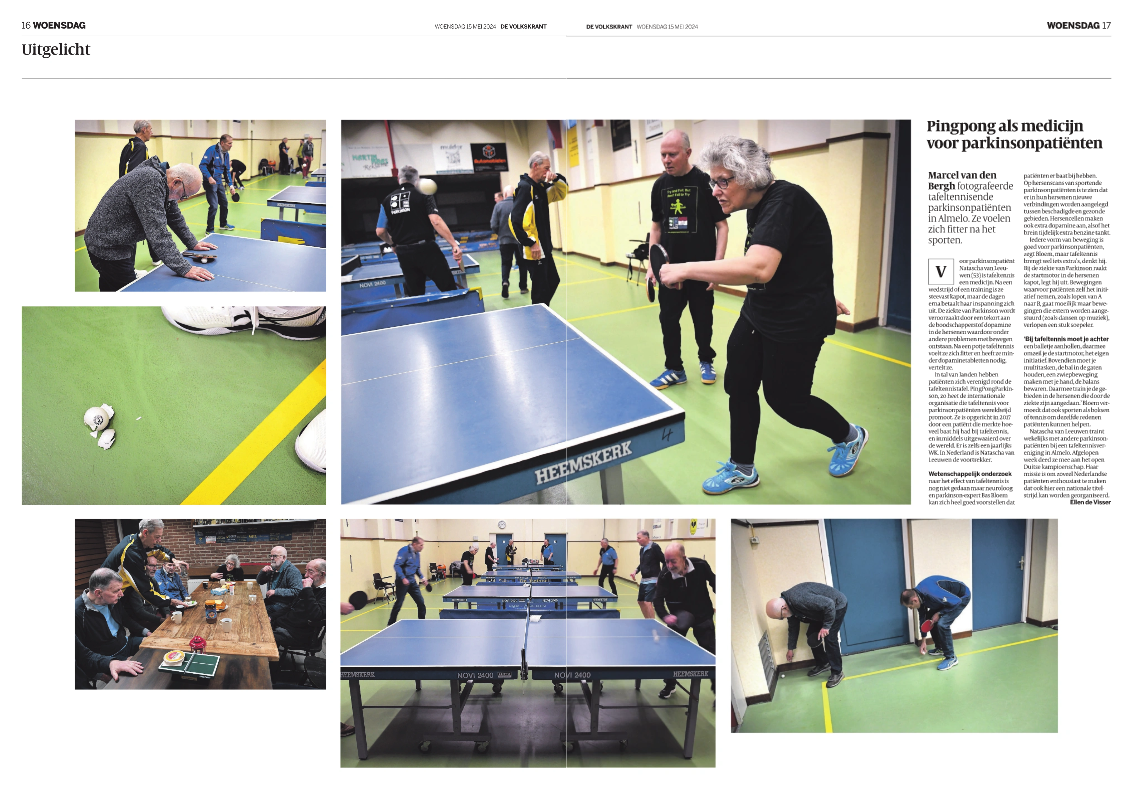In the Volkskrant newspaper of 15 May 2024 there was an article about the beneficial effects of sports in general but table tennis in particular on Parkinson’s disease. As not everyone will have online access to this article herewith the text translated from Dutch:
Marcel van den Bergh photographed table tennis playing
parkinson’s patients in Almelo. They feel fitter after exercising.
For parkinson’s patient Natascha van Leeuwen (53), table tennis is medicine. After a match or training session, she is invariably devastated, but in the days that follow, her efforts pay off. Parkinson’s disease is caused by a shortage of the messenger substance dopamine in the brain, which causes problems with movement, among other things. After a game of table tennis, she feels fitter and needs fewer dopamine tablets, she says.
In numerous countries, patients have united around the table tennis table. PingPongParkinson is the name of the international organisation that promotes table tennis for parkinson’s patients worldwide. It was founded in 2017 by a patient who noticed how much he benefited from table tennis, and has since spread around the world. There is even an annual World Cup. In the Netherlands, Natascha van Leeuwen is the promoter.
Scientific research on the effect of table tennis has not yet been done but neurologist and parkinson’s expert Bas Bloem can very well imagine patients benefiting from it.
Brain scans of sporting parkinson’s patients show that new connections are made in their brains between damaged and healthy areas. Brain cells also produce extra dopamine, as if the brain is temporarily filling up with extra petrol.
Any form of exercise is good for parkinson’s patients, says Bloem, but table tennis does bring something extra, he thinks. In Parkinson’s disease, the starter motor in the brain breaks down, he explains. Movements for which patients take the initiative themselves, such as walking from A to B, are difficult but movements that are externally controlled (such as dancing to music) go a lot smoother.
‘In table tennis, you have to chase a ball, thus bypassing the starter motor, the own initiative. Moreover, you have to multitask, keep an eye on the ball making a swinging movement with your hand, keeping your balance. In doing so, you train the areas of the brain affected by the disease.’
Bloem suspects that sports like boxing or tennis could also help patients for the same reasons. Natascha van Leeuwen trains weekly with other parkinson’s patients at a table tennis club in Almelo. Last week, she participated in the open German championship. Her mission is to enthuse so many Dutch patients that a national title fight can be organised here too.
Ellen de Visser


